Critical thinking skills Plants and Animals Worksheets for Ages 5-8
6 filtered results
-
From - To
Explore our engaging Critical Thinking Skills Worksheets focused on Plants and Animals, designed specifically for children ages 5-8. These interactive activities stimulate young minds, promoting analytical thinking as kids discover the wonders of the natural world. Through fun exercises, students will identify, compare, and categorize various plants and animals, enhancing their observation skills and fostering curiosity. Our thoughtfully created worksheets not only align with educational standards but also encourage creativity and independent thinking. Perfect for use in classrooms or at home, these resources will help young learners develop essential critical thinking skills while enjoying the fascinating realms of botany and zoology.
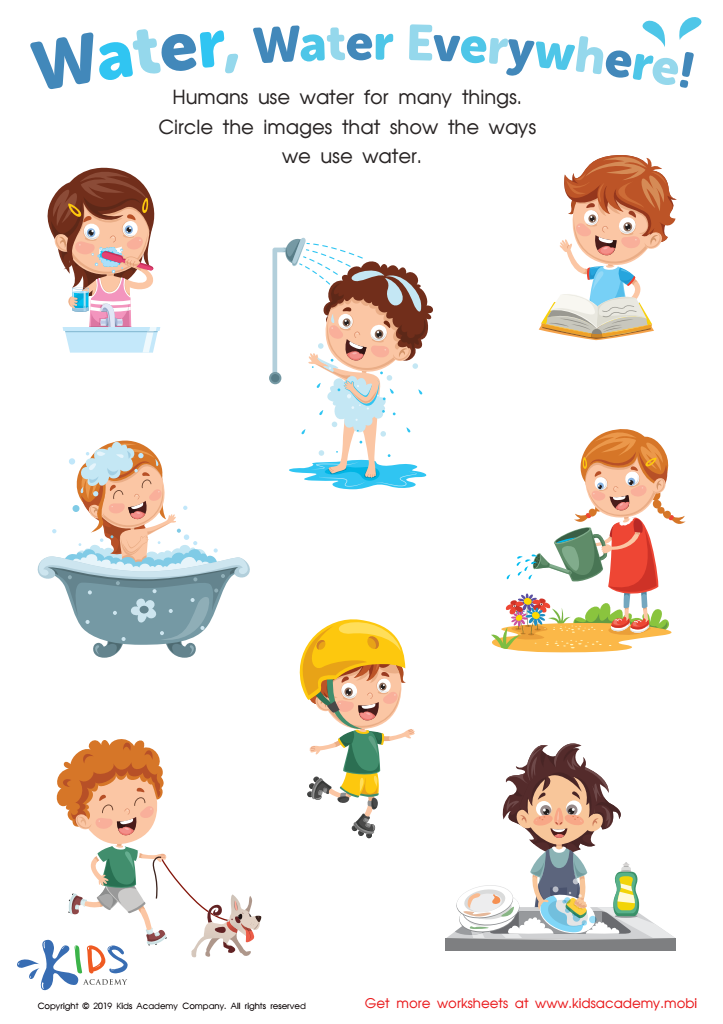

Water, Water Everywhere! Worksheet
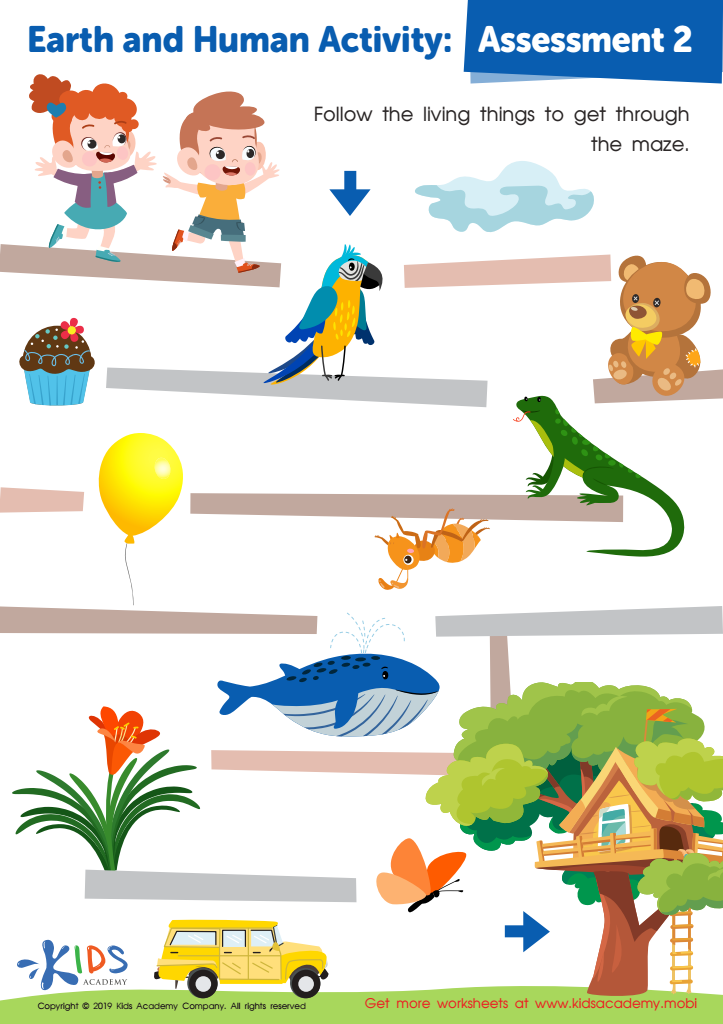

Earth and Human Activity: Assessment 2 Worksheet
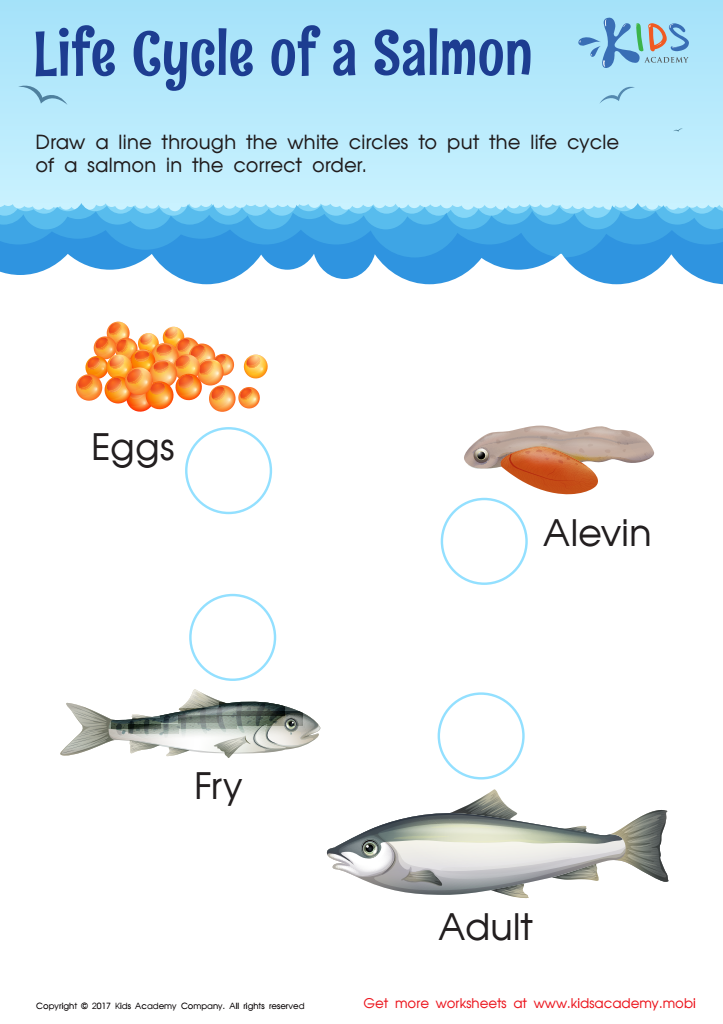

Cycle Of Salmon Worksheet
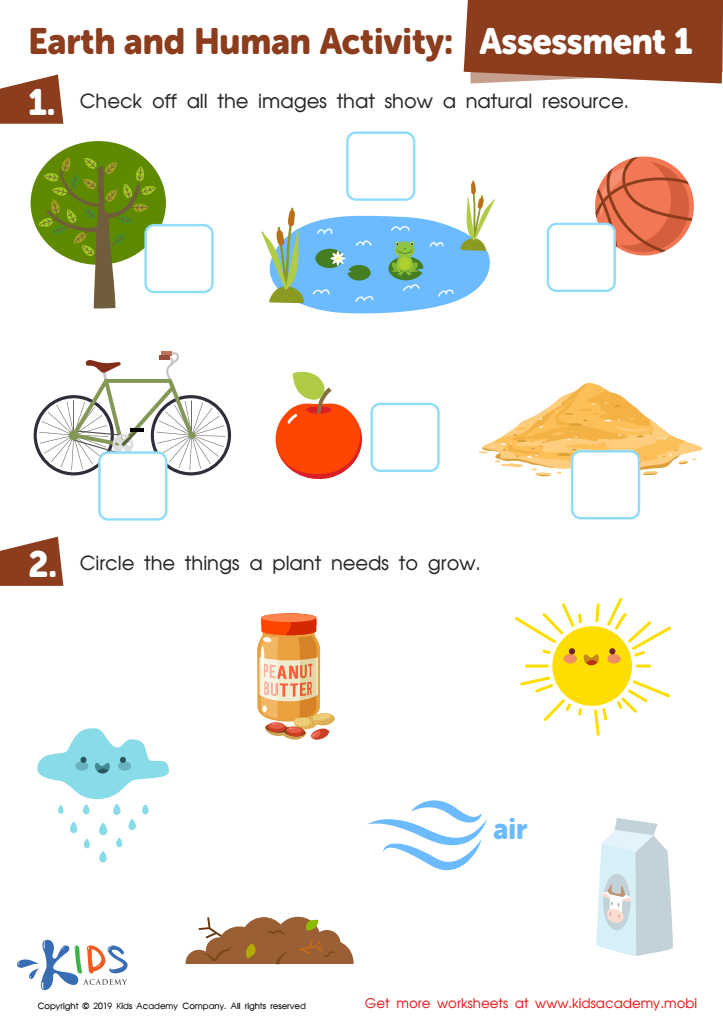

Earth and Human Activity: Assessment 1 Worksheet
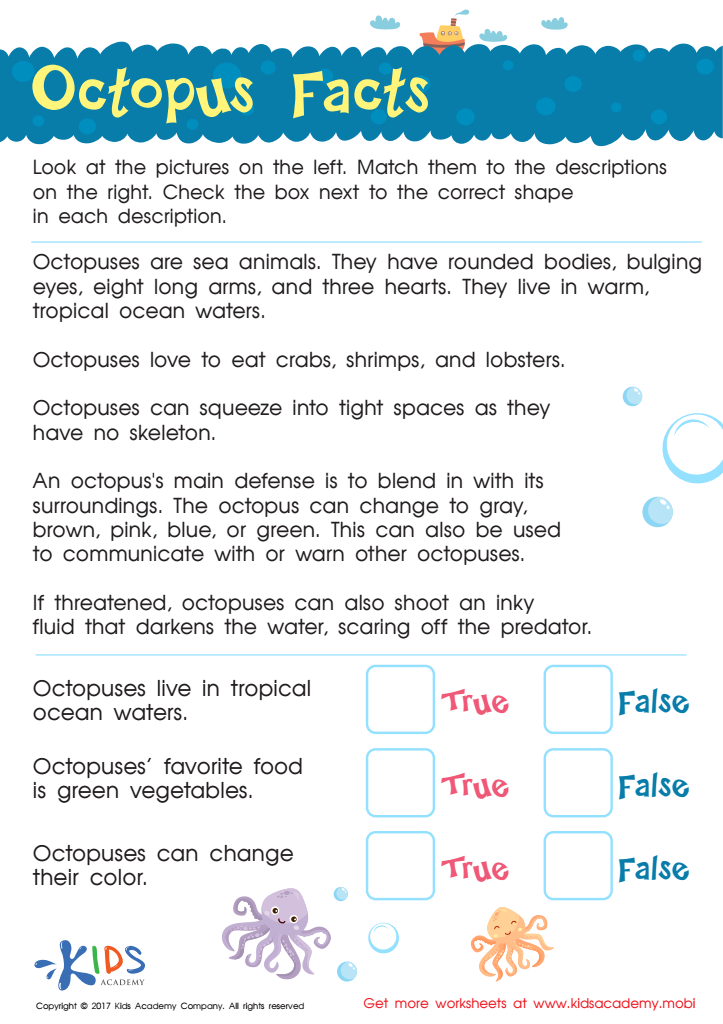

Octopus Facts Worksheet For Kids
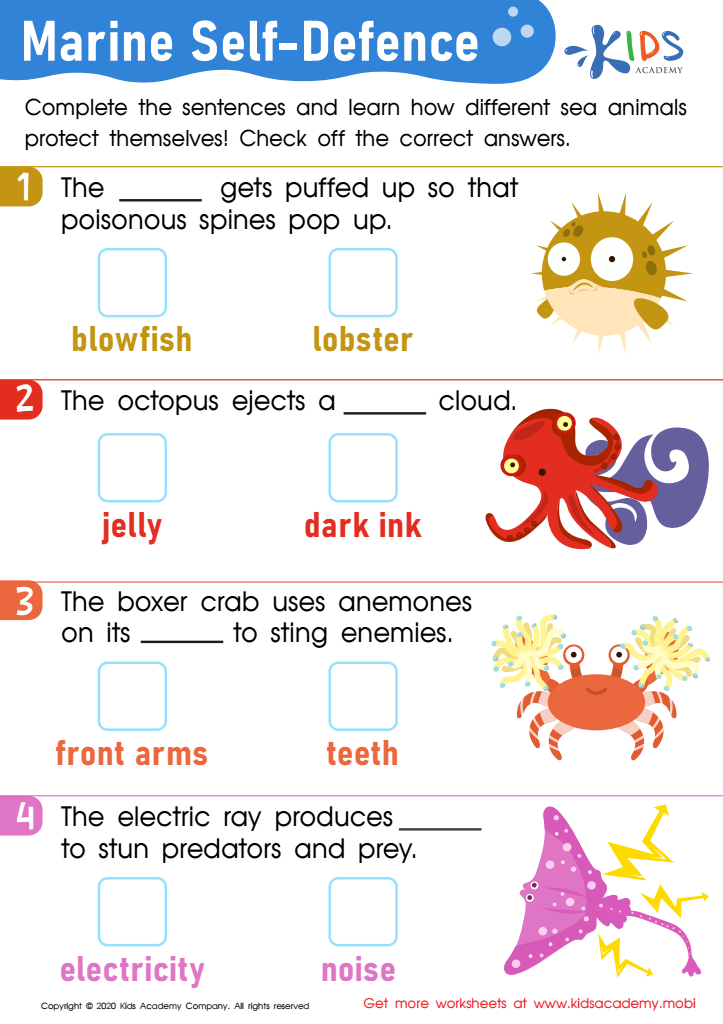

Marine Self-Defence Worksheet
Critical thinking skills are essential for children ages 5-8 as they begin to explore the world around them, particularly when learning about plants and animals. Developing these skills fosters curiosity and encourages deeper understanding of scientific concepts. When parents and teachers engage children in critical thinking activities, they promote observation and inquiry, allowing kids to ask questions about the characteristics and behaviors of various plants and animals.
By nurturing critical thinking, children learn to analyze information, differentiate between facts and assumptions, and draw connections between various concepts. For example, when studying the life cycle of a butterfly or the role of plants in an ecosystem, children are taught to think about the relationships between different life forms, the impact of environmental changes, and the importance of biodiversity.
Moreover, critical thinking helps children develop problem-solving abilities, empowering them to think independently and make informed decisions. This foundation is crucial for lifelong learning and prepares them for complex challenges that may arise in the future. As advocates for their education, parents and teachers can ensure children acquire critical thinking skills, ultimately promoting exploratory and meaningful learning experiences related to the natural world.
 Assign to My Students
Assign to My Students
















